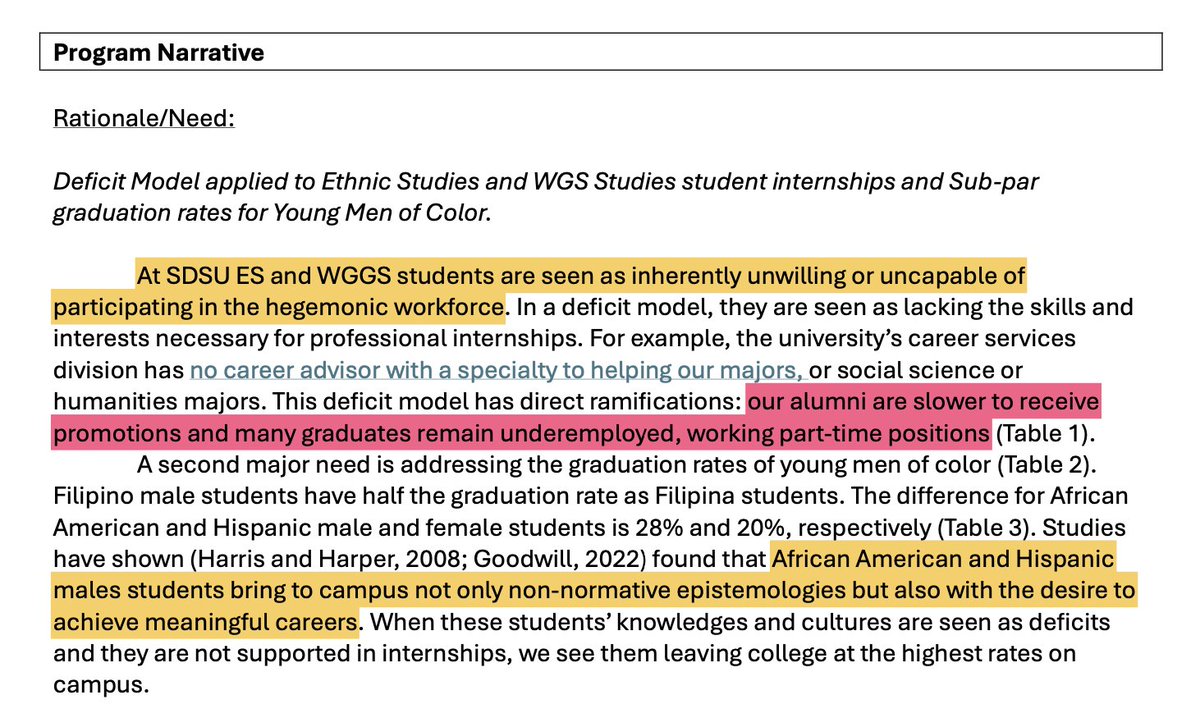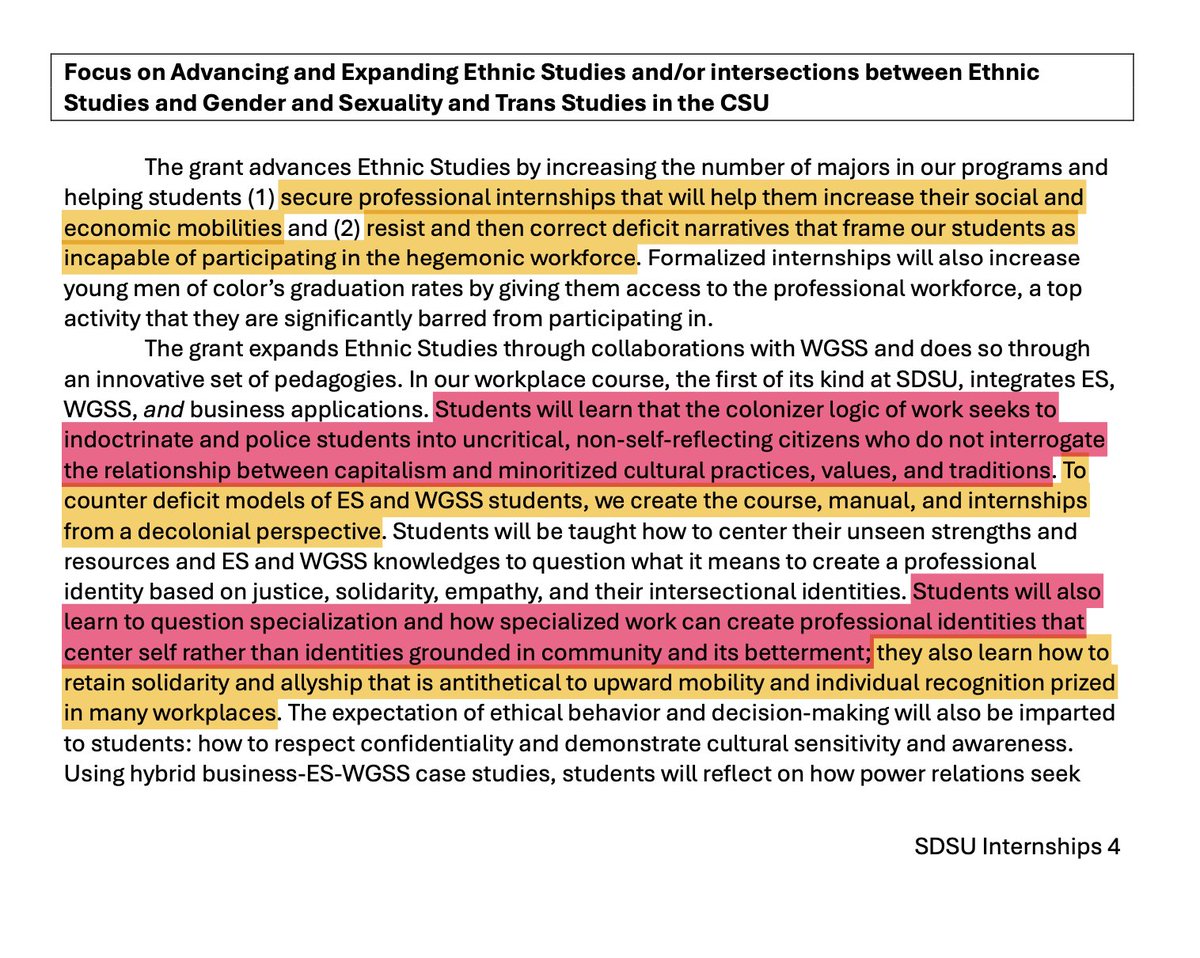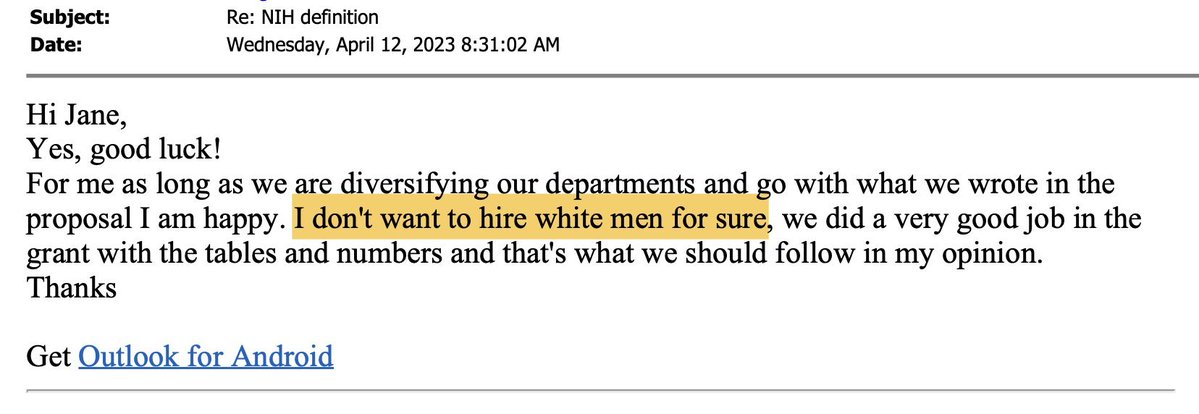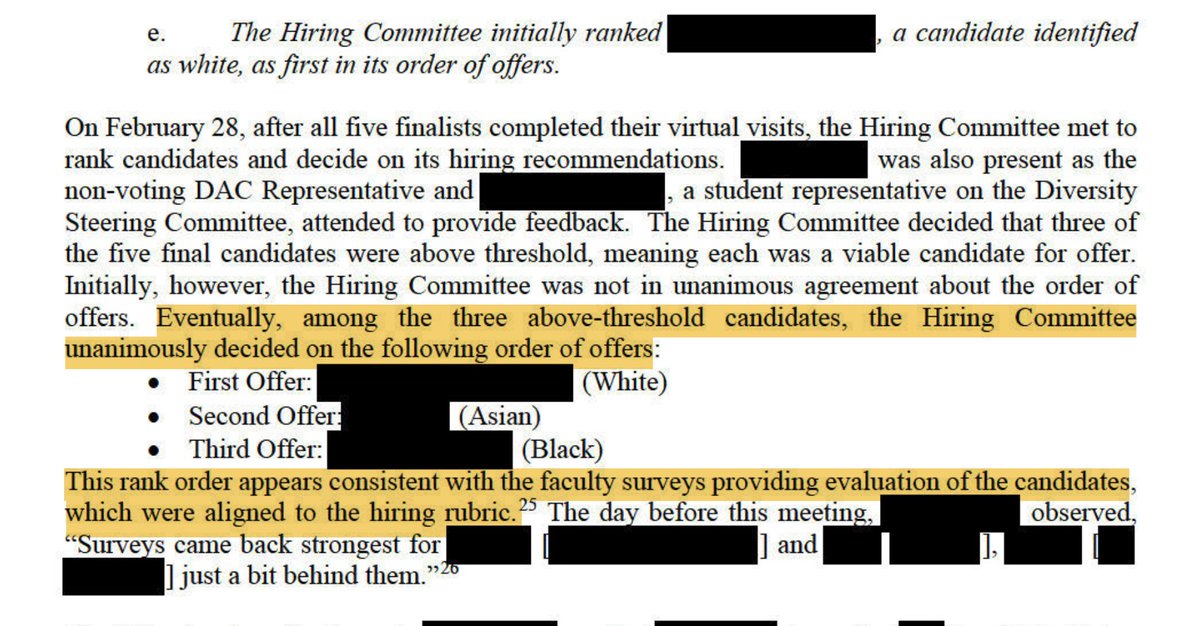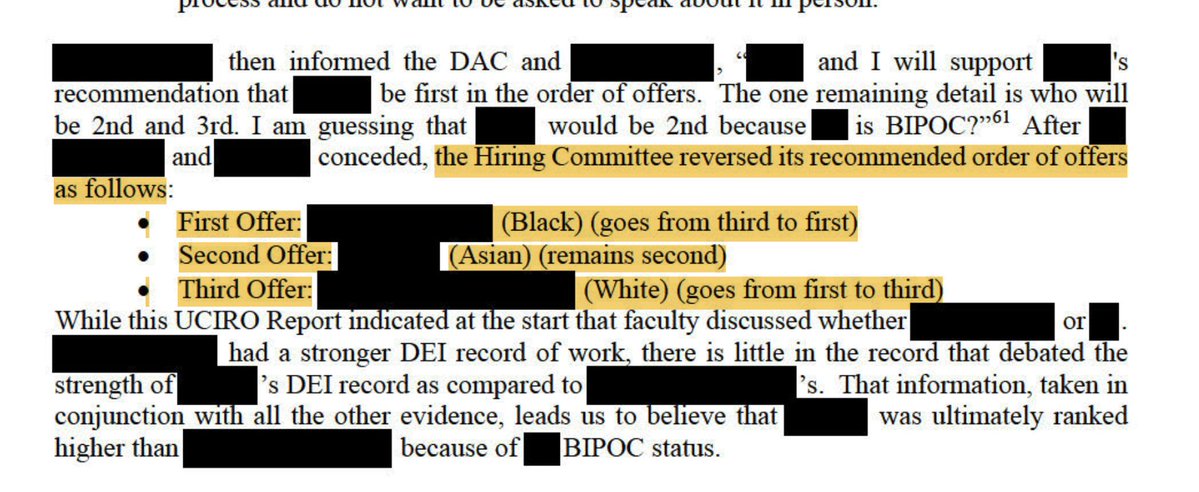Thread: For faculty seeking promotion and tenure, the UNC School of Medicine requires both "positive contribution(s) to DEI efforts" and a DEI statement.
The school has tried to downplay these requirements, but its own P&T documents reveal the obvious compelled speech issues.
The school has tried to downplay these requirements, but its own P&T documents reveal the obvious compelled speech issues.

According the the promotion and tenure guidelines, these "DEI efforts" include:
Participating in "advocacy groups," engaging in "health equity" research, "promoting social justice," and creating "curricular content that uses inclusive concepts."
Participating in "advocacy groups," engaging in "health equity" research, "promoting social justice," and creating "curricular content that uses inclusive concepts."

As an appendix shows, at best, the requirement turns all faculty into adjunct DEI officers.
Recommended DEI activities include: applying "material learned in DEI trainings," giving "social justice-focused lectures," presenting on DEI topics at conferences, building DEI curricula
Recommended DEI activities include: applying "material learned in DEI trainings," giving "social justice-focused lectures," presenting on DEI topics at conferences, building DEI curricula

This policy was prompted by the school's "Task Force for Integrating Social Justice Into the Curriculum," which issued a list of far-reaching DEI recommendations.
Even after pushback, the school mostly defended those recommendations, including the those that compel speech.


Even after pushback, the school mostly defended those recommendations, including the those that compel speech.



The P&T guidelines also link to a list of example DEI statements. While a few are more benign, some include overtly ideological language.
In effect, the sample letters suggest to faculty that they should embrace these concepts (e.g. "intersectionality") or risk losing promotion.

In effect, the sample letters suggest to faculty that they should embrace these concepts (e.g. "intersectionality") or risk losing promotion.


The second letter mentions the school's Safe Zone training. I attended one of these trainings last year.
It was essentially a crash course in the ideology of gender self-identification. (Complete with a nod to pediatric transition.)
It was essentially a crash course in the ideology of gender self-identification. (Complete with a nod to pediatric transition.)

In short, the UNC School of Medicine has implemented a promotion and tenure policy that violates academic freedom and creates serious issues of compelled speech. And on top of that, the policy rewards the promotion of a ludicrous ideology.
CC @Saikmedi @BrentAWilliams2 @JDHaltigan @will_malone @4th_WaveNow @OfficialTerps @jflier @petersavodnik @wesyang @Feelsdesperate @TShampling @slsatel @donoharm @NoahPollak @CHSommers @LeorSapir @DrDanMO @kennymxu @jarobinson1 @wu_wenyuan @NASorg @neetu_arnold @chance_layton
• • •
Missing some Tweet in this thread? You can try to
force a refresh



